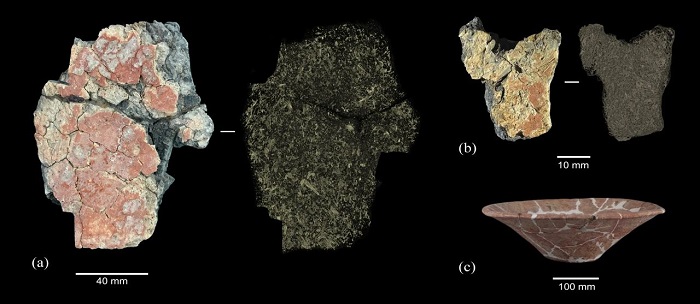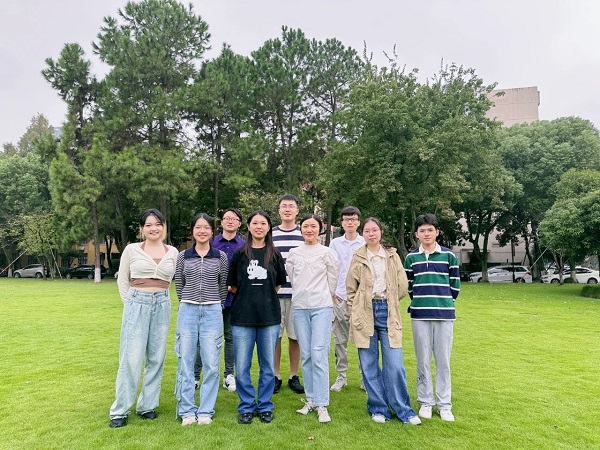Zhejiang archaeologist's new technique finds plant 'footprints' in pottery

Pottery shards and their corresponding CT scans. [Photo/Zhejiang University]
Zhejiang University's School of Art and Archaeology Professor An Ting began an innovative journey three years ago that has brought her to the attention of the global archaeological community.
Together with her team, An has used micro-CT scanning technology to uncover plant imprints hidden within ancient pottery shards – a groundbreaking technique that offers new insights into early human interaction with plants.
It all started when An brought two small pottery fragments from the Shangshan site in Jinhua – one palm-sized and the other coin-sized – to Zhejiang University's construction engineering lab. There, she met engineer Peng Yu and requested a scan of the fragments using micro-CT technology, typically reserved for materials like concrete. The goal was to search for plant traces embedded within the pottery, and the results were astonishing.
Over the course of three years, An and her team became regular visitors to the lab, where the CT scans revealed the outlines of plant remains that had been hidden for over 10,000 years. Most notably, they detected more than 180 impressions of rice spikelets, providing evidence that could shed light on the early domestication of rice in China's Yangtze River Basin.
The team's findings have been published in an authoritative archaeological journal and have sparked international interest. Renowned archaeologist Dorian Fuller from University College London praised An's use of CT scanning to identify rice imprints.
Next June, Professor Fuller will join An's team at Zhejiang University for a symposium titled Lost Crops where they will explore how new technologies are bringing previously invisible plant remains from human history into clearer focus.

Professor An (center in white) and her students. [Photo/Zhejiang University]
-
Hangzhou gets a boost in sci-tech financing
October 9, 2024
-
Wu's unwavering belief
October 8, 2024
-
Hangzhou prepares to welcome guests for 3rd Global Digital Trade Expo
September 23, 2024
-
On board G8388: Lost in the Qiandao Lake — a unique aerial island maze
September 29, 2024



